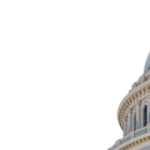The U.S. Department of Health and Human Services (HHS) recently announced a pivotal update to its Final Rule on Research Misconduct. This rule aims to strengthen the foundation of research integrity across federally funded projects, ensuring research practices meet rigorous ethical standards. Through this update, HHS underscores its commitment to transparency, accountability, and maintaining public trust in research. Below, we’ll explore the essential aspects of the updated rule, including its objectives, key provisions, and the potential impact on researchers and institutions.
Why the Update? The Importance of Research Integrity
Research misconduct—fabrication, falsification, and plagiarism—poses a significant risk to scientific progress, public trust, and ethical standards. With federal funding supporting extensive research in health, science, and technology, preventing misconduct and promoting integrity is crucial. The new rule seeks to improve the research environment by:
- Enhancing protections against misconduct in federally funded research.
- Encouraging institutions to adopt transparent practices.
- Ensuring swift, fair, and thorough investigations of potential misconduct cases.
By fostering a culture of accountability, HHS aims to reinforce ethical practices and bolster the credibility of scientific advancements.
Key Provisions in the Final Rule on Research Misconduct
The HHS Final Rule introduces several substantial changes designed to improve the response to research misconduct and ensure proper oversight. Here are the primary updates:
Definitions and Scope of Research Misconduct
- The Final Rule clarifies that research misconduct includes:
- Fabrication: Making up data or results.
- Falsification: Manipulating research materials, processes, or data.
- Plagiarism: Using another person’s ideas, processes, or results without permission.
- These definitions are now more specific, aiming to remove ambiguities and set a clear standard across research institutions.
Institutional Responsibilities and Compliance
- Institutions that receive federal funding must adopt detailed policies for addressing misconduct allegations.
- Transparent requirements are set for maintaining documentation and reporting findings to the Office of Research Integrity (ORI).
- Institutions are also encouraged to proactively train researchers and staff on misconduct policies, which is a shift toward preventive measures.
Expanded Reporting Requirements
- Under the new rule, institutions must now report confirmed findings of research misconduct to ORI within a set timeframe.
- There is an emphasis on transparency in the reporting process, enabling ORI to monitor misconduct more closely and effectively.
Strengthened Whistleblower Protections
- The Final Rule includes enhanced protections for whistleblowers, who often play a vital role in uncovering misconduct.
- Protections prevent retaliation and encourage individuals to come forward without fear, contributing to a safer, more transparent research environment.
Timelines for Investigation and Reporting
- To promote efficiency, the rule introduces stricter timelines for completing investigations.
- Institutions must follow specific timelines for each stage of the misconduct process, from preliminary inquiries to final reporting.
- This change aims to prevent prolonged investigations and streamline the resolution of cases.
What the Final Rule Means for Researchers and Institutions
The HHS Final Rule has important implications for the research community. Here’s how it may impact different stakeholders:
- Researchers: With enhanced definitions and compliance expectations, researchers are encouraged to adopt best practices in data handling, documentation, and citation to avoid unintentional misconduct.
- Research Institutions: Institutions are now responsible for conducting thorough and efficient investigations of alleged misconduct. They must establish robust policies, ensure that staff are well-informed, and report confirmed cases to ORI.
- Whistleblowers: The strengthened protections may reassure potential whistleblowers, making them more likely to report unethical practices without fear of retaliation.
- Public Trust: These measures ultimately aim to foster public confidence in research. The Final Rule strengthens accountability and integrity across research fields by enforcing strict policies and timely investigations.
How Can Institutions Comply with the New Rule?
To adapt to these new requirements, research institutions should consider taking the following steps:
- Update Internal Policies: Institutions should review and update their policies to align with the HHS Final Rule, ensuring they meet all requirements.
- Enhance Training Programs: Training researchers on responsible conduct, data management, and documentation can reduce misconduct.
- Establish Clear Reporting Processes: By creating clear reporting protocols, institutions can ensure investigations proceed smoothly and meet HHS’s timelines.
- Promote a Culture of Integrity: Encouraging a culture that values ethical research and transparency can prevent misconduct and contribute to a positive research environment.
Moving Forward: The Path to Ethical and Reliable Research
The HHS Final Rule represents a substantial step toward a more accountable and ethical research landscape. As institutions implement these new guidelines, researchers and administrators will actively maintain the high standards expected of federally funded research. The changes underscore HHS’s dedication to ensuring that research findings remain credible, trustworthy, and aligned with public interests.
The HHS Final Rule on Research Misconduct fosters a culture of integrity, transparency, and accountability, setting a foundation for ethical research practices that benefit science and society.
Visit the complete document at the official Federal Register page.







